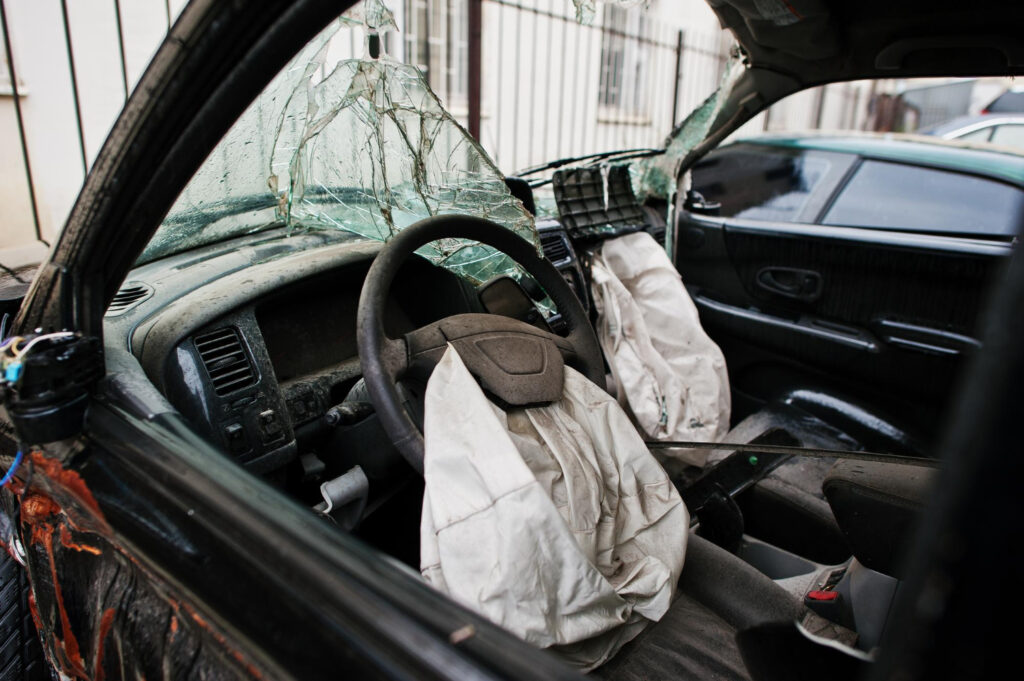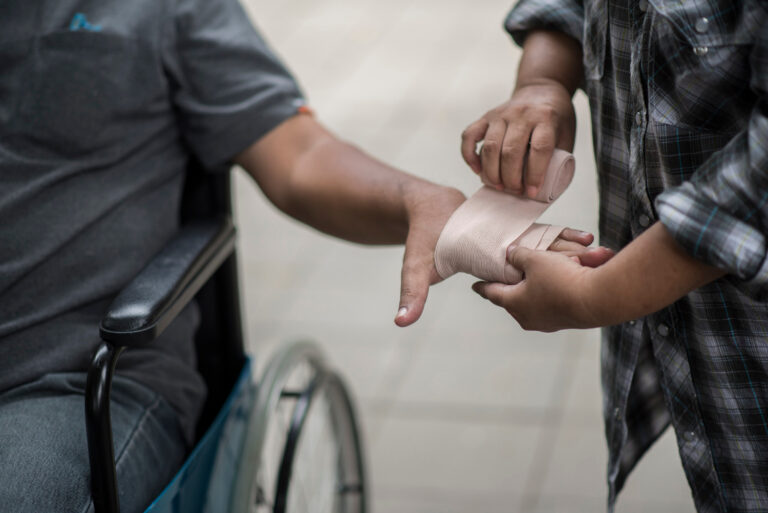
As experienced lawyers at JeffMcKnightLaw, we understand that airbag deployment, while often life-saving, can come with its own set of unexpected problems. Have you ever wondered what side effects you might face if your airbag goes off during an accident? In this article, we will uncover the hidden dangers and health issues that could arise from airbag deployment. Stay informed and protect your rights by reading on to learn more about these critical side effects.
On the authority of NHTSA, side effects of airbag deployment can include minor burns, bruises, and abrasions. More serious injuries like hearing loss, eye damage, and wrist injuries may also occur. These effects are due to the speed and force with which airbags inflate.
Common Side Effects of Airbag Deployment
Some intriguing side effects of airbag deployment include temporary hearing loss, burns, abrasions, and bruises.
By definition, when an airbag deploys, it can hit your body hard, causing small injuries like cuts, scrapes, and bruises. The chemicals that inflate the airbag might also cause minor burns if they touch your skin. The loud sound when the airbag goes off can temporarily affect your hearing or cause ringing in your ears.
Simply put, the force of the airbag can also cause whiplash or make existing neck or back injuries worse. If you are in a car accident and the airbags deploy, it’s important to get medical help to check for and treat any injuries.
Physical Injuries from Airbag Deployment
Airbags deploy with explosive force during a car accident, often reaching speeds of up to 200 mph, to shield occupants from severe injuries but can sometimes cause burns or abrasions themselves.
At its simplest despite their life-saving purpose, airbags can cause injuries when they deploy. Common injuries include burns, cuts, bruises, and in rare instances, broken bones or head injuries. The severity of these injuries often depends on the speed of the car during the crash.
Burns happen most often when the airbag inflates and touches the skin. These are usually minor and heal on their own, but more serious burns might need medical care.
Besides burns, the force of an airbag can cause cuts or bruises. These are typically minor and heal without treatment. However, sometimes the impact can lead to more serious issues like broken bones or concussions.
Even if you feel fine after a car crash, it’s important to see a doctor. Some injuries, like concussions or internal bleeding, might not show up right away but can become serious if not treated.
Chemical Burns and Airbag Deployment
Airbag deployment can cause chemical burns due to the rapid release of chemicals.
In other words, these chemicals can irritate and damage the skin if they make contact. How bad the burn is depends on how long you are exposed and how strong the chemicals are.
Airbags are safety devices that protect passengers during a crash by inflating quickly. The chemicals in airbags, like sodium azide, create gas to fill the airbag. However, if the airbag doesn’t work right or inflates when it shouldn’t, these chemicals can cause burns.
It seems that, if you get a chemical burn from an airbag, quickly take off any clothes with chemicals on them and rinse the burned area with water to wash away the chemicals. It’s important to see a doctor right away to stop further damage and to treat the burn properly. In serious cases, you might need skin grafts or other procedures to heal and reduce scarring.
Car manufacturers need to ensure airbags deploy safely to prevent chemical burns. Regular checks and maintenance of airbag systems can help avoid malfunctions and injuries from chemical burns.
Respiratory Issues Post-Airbag Deployment
Airbag deployment can trigger respiratory issues by suddenly releasing chemicals and particulates into the air.
Typically when airbags go off, certain chemicals and particles can get into your lungs. This can make you cough, wheeze, feel short of breath, or have a tight chest. Sometimes, these substances can cause serious issues like asthma attacks or worsen existing breathing problems.
One of the chemicals released is called sodium azide, which turns into nitrogen gas and other substances that can irritate your lungs and inflame your airways. The dust and fabric particles from the airbag can also make breathing issues worse.
Simply put, if you have trouble breathing after an airbag goes off, it’s important to see a doctor right away. They can check how bad your symptoms are and suggest treatments like inhalers or other medications that reduce inflammation and help you breathe better. You might need more tests to make sure there aren’t any other injuries from the airbag.
It’s important to tell your doctor that the airbag was deployed when discussing your breathing issues. This helps them figure out the best way to treat you.

Long-Term Effects of Airbag Deployment
The long-term effects of airbag deployment may include potential injuries such as burns, abrasions, or contusions from the airbag deploying with force.
In a basic sense, when an airbag goes off, it can make a really loud noise that might hurt your hearing. The chemicals in the airbag can also cause breathing problems if you breathe them in.
Experiencing a car accident where the airbag goes off can lead to mental health issues like PTSD or anxiety. These feelings might stick around for a long time and affect your everyday life.
The force of an airbag can also cause long-term injuries. Essentially, you might get whiplash, neck injuries, or even hit your head hard, especially if the airbag goes off really strongly.
If you’re in an accident where an airbag goes off, it’s important to get checked by a doctor and keep following up to see if any long-term problems come up. It’s also important to take care of any mental stress caused by the accident.
Verdict
While airbags are designed to save lives in car accidents, they can also cause a range of side effects upon deployment.
What JeffMcKnightLaw is backing the decision to is, from minor injuries like burns and abrasions to more serious issues such as fractures and concussions, it is important for drivers and passengers to be aware of the potential risks associated with airbag deployment.






